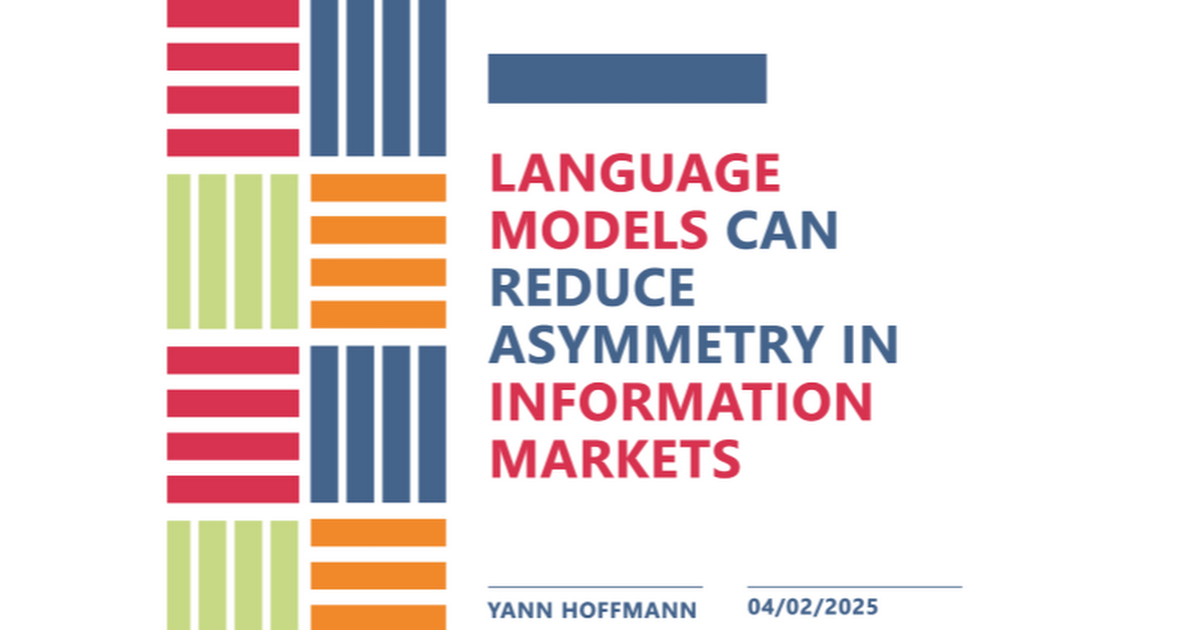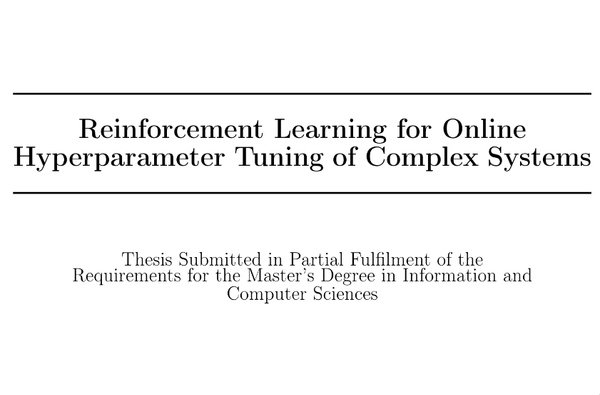Language Models Can Reduce Asymmetry in Information Markets – Slides

Language Models Can Reduce Asymmetry in Information Markets
In this presentation, I explore how language models (LMs) can help address information asymmetry in digital marketplaces. The core challenge in such markets is that buyers need to inspect information before purchasing, while sellers must limit access to prevent unauthorized use. This leads to inefficiencies and market failures.
The slides cover:
- The buyer’s inspection paradox and its impact on information markets.
- A simulated digital marketplace where LM-powered agents buy and sell information.
- Key experiments evaluating the marketplace’s usefulness, biases in LM decision-making, and price sensitivity.
The findings suggest that structured digital marketplaces, powered by AI, can enhance decision-making, reduce inefficiencies, and create fairer economic interactions.

The Shapley Value in Machine Learning







